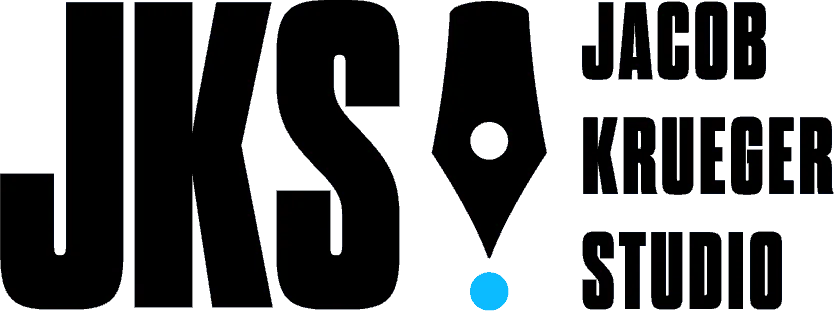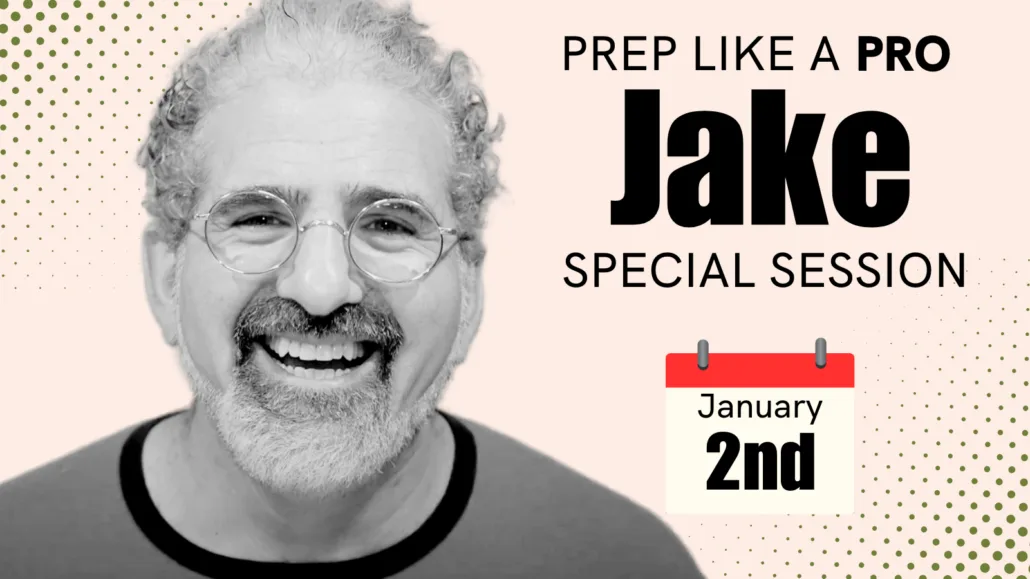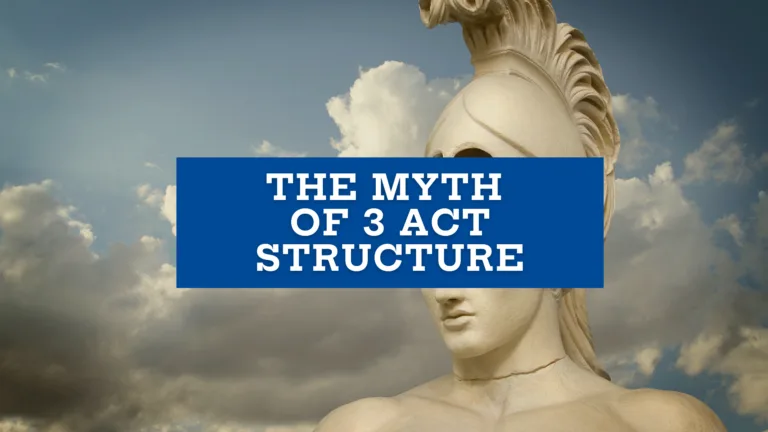Dune: Exposition Is Killing Your Screenplay
Dune is a film adaptation that has brought some of the greatest filmmakers ever to their knees. So why is it so hard for screenwriters to transcend the challenges of Frank Herbert’s source material?
The screenplay for Dune is nearly all exposition–the writers narrate nearly every moment with some kind of voiceover telling the audience what’s happening– so why is everyone still so confused?
Why does the audience still not know what’s happening when the writers give them so much exposition?
Why does a film that is so incredible to look at feel so boring and hard to connect to?
Why does a film that is trying so hard to make a sci-fi for adults, to write about real-world issues, real characters, and real complexity rather than simplistic Hollywood solutions– why does a film that’s trying so hard, with such positive intentions, ultimately seem so predictable?
There are a lot of challenges for the writers in adapting Dune, challenges that you’re also going to experience if you’re working on an adaptation of a book into a screenplay.
These writers are dealing with all kinds of challenges: complex world building, shifting point of view, a preponderance of characters.
But mostly, in adapting Dune into screenplay form, they are trying to take something very big and make it very small.
Screenplays are small. A typical screenplay is 105 pages long. Even a two and a half hour movie like Dune is probably around a 150-page screenplay.
How do you take a 900 page novel and crush it down into what should probably be no more than a 120-page screenplay or even maybe a 105 page screenplay?
How do you take all that information and exposition and squash it down so the novel of Dune will actually work in a screenplay adaptation?
How do you adapt a screenplay out of a novel that is sprawling and internal?
How do you take the things that novels do really well, which are different from the things that screenplays do really well, and translate them into a form that can work in a movie?
How do you stay true to the intentions of the author – whose novel has inspired generations of sci fi movies – when elements that weren’t cliché when the writer wrote them have now become cliché because they’ve inspired and been adapted and used by so many sci fi writers?How do you stay loyal to the intentions of a beloved book while also updating it and making it make sense for today’s audience?
How do you make Dune into a 2021 movie?
I wish I could say that these three very experienced, very talented writers on Dune had achieved that in their screenplay adaptation, but in my opinion, they did not.
Where the writers fell short in their adaptation of Dune, oddly, is not in the difficult elements of screenwriting. They fell short in the simple ones: the same elements you are likely to struggle with if you’re a new screenwriter…like exposition.

We sometimes think that if you write 100 screenplays that you’re suddenly going to know how to write great exposition and adapt epic books into amazing scripts because you now have screenwriting experience.
The truth is that every screenplay is like a new baby, especially when our writing goals get really lofty. When we set lofty writing goals, we’re not just trying to tell the truth or make an entertaining movie, we’re trying to make a great movie.
We’re not just trying to write the best screen adaptation of Dune we can, we’re also trying to do an homage to the 1984 David Lynch adaptation, and we’re also trying to correct all the mistakes made in that adaptation, and we’re also trying to take our adaptation to the next level, and we’re also trying to be the new Star Wars.
When our screenwriting goals get this big, we lose our screenwriting fundamentals, and our fundamentals are actually what allow us to be great writers.
We’re going to go over some of the writing fundamentals of Dune. I want you to understand where the writers lost track of their writing fundamentals. I want you to understand how, by getting back in touch with your writing fundamentals, you empower your main character to drive the story.
I want you to understand how, by getting back to those fundamentals – how you deal with exposition, how you externalize the internal, how you make those hard choices when trying to adapt the whole story while preserving the spirit of the story, how you use theme to focus your writing, and most importantly, how you could take the beautifully problematic script for Dune and turn it into a successful screenplay.
What’s interesting is the direction of Dune, the costume design of Dune, the set design of Dune, the world building of Dune–these elements of the story are working.
In fact, they’re working so beautifully, they’re so focused, they’re so professionally handled, they’re so transcendent, that there are moments where the viewer can kind of fall in love with Dune even when what’s happening underneath in the script isn’t working.
But as the script rolls on for its two and a half hours, the breathtaking beauty of the images starts to become less compelling. You start to feel the drone, the predictability, and the whole thing just kind of slows down. Let’s talk about why. What’s going on?
The first problem with the screenplay of Dune, plain and simple, is exposition.
You may have noticed that nearly every scene in this movie is explaining something to the audience from the very beginning.
Dune starts with these gorgeous images of this horrible war. But really this is just a bit of smoke and mirrors to allow the writers to provide exposition in a voiceover: These horrible people were mining for spice, and spice is really important because it’s both a hallucinogen and also something necessary for intergalactic travel. It’s the most expensive, most valuable commodity in the galaxy. And then you have these oppressed people, and these oppressed people rose up, but then they were getting slaughtered by the bad guys, but then the bad guys suddenly up and left the planet.
And the audience thinks, Okay, I’ve got it. I’m ready for the movie to start.
But the movie does not start.
What happens instead is the writers of Dune give us more exposition. In fact, the screenplay gives us even more scenes created just to create exposition.
For example, we meet Paul Atreides, the main character, played by Timothée Chalamet. There’s an early scene where Paul is with his mother (Rebecca Ferguson), and we watch her try to train him how to use “the voice.”
But what we’re actually watching is a scene where Paul asks his mother for a glass of water!Sure, there’s some interest when Jessica replies, Make me pass it. Use the voice. But just as quickly, we’re back into boring setup for a scene we could just as easily have gotten right into: Oh, by the way, your dad needs you in dress clothes.
As a result, instead of building a connection with Paul Atreides, we’re introduced to a main character who already doesn’t want anything, isn’t showing anything about his “how” (except that he’s not great at using “the voice”), and is in a situation where there’s nothing happening that really matters to him.
You’re meeting a character who is mush, because the scene doesn’t exist for the character. The scene exists for the audience.
The scene exists because the writers are saying, Hey, we need a scene to establish for the audience that there’s this thing called “the voice” because his big change at the end of the movie is that he’s going to finally use “the voice.”
Don’t write a scene about a glass of water just to set up a future scene and some exposition in your script. Write a scene that’s fun, that drops your character right into the action, and allows them to reveal who they are!

Don’t introduce your character with a scene about how much his mom wants to train him. Introduce your character with a scene about what he wants, or what they want, or what they are going for and what obstacles there are that stand in their way.
Once we’re through that exposition, the audience thinks, Okay, I got it. There’s been this weird battle, and now there has been this weird withdrawal, and there is also this thing called “the voice.” Okay, we got it. Thank God, we got through all that exposition. Now the movie can start.
But the movie doesn’t start.
We then have a practice fighting scene. The whole purpose of the practice fighting scene is to establish for the audience that there are these cool things called shields, and that even though the shields will protect you from a blade, a slow-moving blade can pierce the shield.
Why is it important to know that this slow blade can pierce the shield? The writers are setting up exposition because later on – and sorry for the spoiler…
Dad’s gonna die after a slow-moving needle pierces through his armor.
It’s all exposition. The practice fighting scene is not starting the story. In fact, Paul doesn’t want anything in this scene either.
Okay, the audience thinks, we got it. We’re through all the exposition. Thank goodness, because I’m ready for the movie to start. I know there was a weird battle that I heard narrated by a woman’s voice who’s a member of that of the oppressed people who live on Dune. And then we switched point of view and now I know that there’s this weird thing called “the voice.” And there’s a mom who wants her son to use “the voice,” but he’s a little bit ambivalent. And there’s this armor that has this one weakness. Whew! That was a lot of exposition, but I got it. Let’s let the movie start.
But the movie doesn’t start.
Instead of the Dune finally starting after all these expository scenes… the screenplay delivers yet another scene created only for exposition.
We meet dad, Duke Atreides (Oscar Isaac), whom the audience pretty much knows is as good as dead from the moment they meet him.
Paul’s father shows up to tell Paul all the exposition about why he wants to go to Dune; the exposition about how he doesn’t trust the Emperor, the exposition about how he wants to harness desert power in his fight against the Emperor, the exposition about how he suspects that perhaps the Emperor is playing a game, the exposition about his speculation that he’s been given Dune because he’s become too strong, and the exposition that he now needs to make a bond with the oppressed residents of Dune.
Paul says, What if I don’t want this? And dad says, essentially, Don’t worry, kid. I went through the same stuff. Eventually you will. And Paul says, Okay.
Then Paul says, Dad, I want to go to Dune early because I’ve had this dream where the man who I really have the strongest relationship with – you know, Drogo from Game of Thrones – I had this vision where he died and I want to protect him.
And dad says, No.
And the audience thinks, Oh, thank God, the show is going to finally start! Paul’s going to go to Dune early. He’s going to defy his father and he’s going to go on a journey.
But he doesn’t defy his father, leave for Dune early, or go on a journey. What happens instead is that Paul says… okay.
Why does he say, okay?
Because in adapting Dune, the writers are so busy setting up all of this complicated exposition for the audience that they’ve forgotten about the real job of a screenwriter, which is to create drama.

Where does drama come from? Well, as David Mamet describes it, “What does her want and what happens if her don’t get it?”
The way I like to look at this is, what does the character want? How is the character trying to get it? What’s getting in the character’s way?
The challenge with the character of Paul Atreides in Dune is that the only thing he kind of wants is to protect this guy he cares for… and he’s barely trying for it.
The only thing the writers show us is what Paul doesn’t want.
He doesn’t want to command his mother with “the voice.” He doesn’t want to practice fighting. He doesn’t really want to inherit all this responsibility from his dad. He doesn’t want to be in charge.
But we don’t know what he does want. And whatever that is, he’s not doing anything actively to pursue it.
So the screenplay ends up with a passive main character who doesn’t want anything.
You might make the argument that it’s kind of cool to have a passive main character in a screenplay.
Here’s this guy from this really rich family who kind of lives under the thumb of his mom and his dad. His mom is manipulating him for her own plans. She wants him to “get into the best possible college” and dad wants him to “take over the family business.”
I’m teasing, but the idea is that maybe this kid isn’t so different from a lot of kids from really wealthy families who feel the weight of all this responsibility to live up to who they’re supposed to be, but maybe don’t have a strong sense of who they are.
We’ve been promised the hallucinogen of spice and shown a kid who has dreams he’s afraid to recognize, and we might start to think, Maybe we’re going to meet a kid who doesn’t really know what he wants, who’s going to eventually start to learn what he wants, who’s going to eventually learn to understand his own destiny, and that would actually be a beautiful journey.
But even if that was the goal, the exposition in Dune ends up destroying the movie’s ability to tell the story of that character.
If you let go of all the exposition, you could establish that kid in three scenes. Get that kid to Dune and then kill everybody because, quite frankly, that’s what we already know is going to happen.
And anyway, despite how hard the screenwriters are working to establish all this, the plan of the Emperor they are trying so desperately to explain doesn’t actually make any sense.
The screenwriters do all this work laying in exposition to get the audience to understand the complexities of a politics that are not even sensible.
The bad guys are already in charge of the planet. The good guys are at home. Why is the Emperor going to put the good guys in charge of the most powerful, valuable substance?
Why is the Emperor going to piss off the bad guys and then loan his own troops to the bad guys for the bad guys to go kill the good guys?
This is not necessary.
The screenwriters literally could have had the Emperor say, Attention elite forces, the bad guy troops kind of need your help so help them go kill these good guy troops. Or the Emperor could just send his own troops since he has the very best troops in the galaxy, troops that are so good that the bad guys need to ask for their help in order to win. The bad guys already have the doctor’s wife and he could just as easily lower the shields on the good guys’ planet as on Dune.
The complicated exposition the writers of Dune use to establish how important and serious this screenplay adaptation is ends up being all for nothing, because they have their eyes focused on the wrong ball.
It’s all for nothing because the screenwriters are establishing a bunch of information that the audience doesn’t even need to know.
When it comes down to it, you could deliver all of this exposition in five minutes, and in a much more exciting way. You could introduce a kid with one desire, which is to go to Dune before his family in order to protect a friend… a desire he can’t even bring himself to act on because everything in his life has been determined by his parents, and then you send him to Dune, and take everything away from him.
How do you know you handle the exposition so quickly?? Look at the screenplay for Dead Poets Society! Because in Dead Poets Society, Neil is essentially the same kid as Paul Atreides.
He’s a kid from a rich family under the thumb of his parents. And in two minutes, you understand what Neil wants. Neil wants to do the yearbook. Then what happens? Neil’s dad says, No. How does Neil respond? Neil crumbles.
In less than two minutes, the audience is hooked and has all the exposition they need.
As a screenwriter, you could do the exact same thing in your adaptation of Dune. Your screenplay doesn’t need a whole scene to establish that a slow blade passes through a shield. Your screenplay can just show that happening during one of these battles.
Your screenplay doesn’t need a long scene to establish the complicated back and forth with the Emperor. It doesn’t even need a single line to establish that the Emperor is treacherous. In fact, we don’t even know who the Emperor is yet! We could meet the emperor in Dune, Part 2 just like we met the Emperor Star Wars: The Empire Strikes Back.
We don’t know that there’s some Emperor above Darth Vader in Star Wars, Episode Four. We don’t need to know! We are going to find out about him in The Empire Strikes Back.
Don’t waste time laying in exposition about characters we’re not even going to meet in this movie. Don’t try to capture every aspect of the book you’re adapting into a screenplay. Instead, focus on what’s happening now, that’s already cool, and you’ll find the audience doesn’t need much exposition to understand it.
Instead of wasting all this time on the history fo the war and the motivation of the Emperor, we could meet our incredible floating dude who’s just been robbed of his planet and wants it back.
We could see the drama of this doctor who loves his wife but has to leave her to go to this planet far away to protect this boy and his father who he also loves and cares for.
We could dramatize the boy who really wants to go to Dune to save his friend.
We don’t even need the visions because the visions are going to happen later in the movie when he’s high on spice.. We could just show a piece of them. We don’t need to explain them. In fact, we could even cut them.
All we need is a kid who wants to protect the person who is close to a real father figure, the one who really has spent time with him, but who’s now off fighting this weird war that the kid wants to join but can’t; a kid who can’t stand up to his father’s plans or his mother’s plans and who’s not really prepared for his legacy.
We could meet this kid in five minutes.
We could send him without ever knowing that a betrayal is afoot. We could send him to this new world and let him experience this new world.
We don’t need a false jeopardy about how they’ve been left with all this industrial machinery that’s never going to work. It’s never going to matter because they’re going to be attacked that night!
For the story structure of Dune, we just need Paul Atreides to start to fall in love with this new world. We need to see something get awakened in this kid who can’t stand up to anybody.
Now along the way there, we probably do need the scene with the hand. The scene with the hand is awesome. And we don’t need any exposition to understand it. Paul doesn’t understand it– so we can discover what it means at the same pace that he does!
But watch David Lynch’s 1984 version of Dune. For all that’s wrong with that adaptation, what’s beautiful about the scene with the hand is that the Reverend Mother who’s speaking to Paul is the one generating the pain. She is speaking the pain to him, she is summoning it, she is hypnotically suggesting it.
In this adaptation, we just see Timothée Chalamet fake pain. There’s no interpersonal exchange between Paul and the Reverend Mother. We can have this incredible scene with the hand but the screenplay doesn’t need all the Reverend Mother’s exposition that Your father has a plan, and your mother has a plan, but she works for us, but she also works for your dad, but she’s also his concubine, and I control the Emperor, but you don’t know that I control the Emperor because I’m doing this, but I’m also doing that, and I’m trying to protect you, but I’m also trying to betray you.
The adaptation of Dune doesn’t need all of that exposition.
Adaptation is a process of holding on to what’s beautiful in a novel, but it’s also a process of letting go. Adaptation is a process of connecting your audience to the drama in a novel, not the exposition.
An amazing thing happens when you emphasize exposition in your screenplay: The more you explain, the less the audience understands. The more you clearly lay it out for them, the more your audience says, huh?

When you just focus on writing exposition, you lose the drama that connects your audience to the characters.
When you lose that connection, your audience ends up becoming passive viewers. They’re like a student in a boring history class saying, Oh, look at the pretty spaceship. Wait, what were they saying again?
When you create scenes that are designed to inform the audience, rather than to drive the main character’s story forward, we stop caring about your main character and we lose the sense of the drama in the movie.
In Dune, the focus on exposition is all for nothing because instead of connecting the audience to the drama in Paul’s story, the exposition disconnects them from it.
Imagine that we meet this kid, Paul Atreides, who can’t stand up to anyone. We have a little bit of room for him to have an experience on Dune. He comes back home and we have some time to build a relationship between him and the doctor who cares for him, between him and the beloved friend and mentor who trained him, between him and the father that he can’t connect to, between him and the mother who seems to have her own plans that he’ll never understand even though she’s the only person in the world whose love he feels confident about. (Perhaps we even cast a woman who is age-appropriate to mother him).
Imagine we send Paul on a journey where he can connect to what spice is and what spice does for him. He can start to find a feeling of purpose out from under his father’s and mother’s thumb only to come home and discover that everything has been taken from him.
In Dune, the thing that we look forward to is for Paul to lose the safety of his family and find these people of Dune and discover his connection to them. This is supposed to be his giant journey and his giant change.
But the actual plot of the story is designed to make that easier rather than harder! And as a result, it robs Paul of his change!
The writers literally pick him up in a plane and drop him where he needs to go as opposed to allowing him to go on that journey under his own power and make his own choices; to listen to his mom, or to ignore her, or to fall under her thumb– because only she knows how to use “the voice” to free him from the bad guys.
If the writers of Dune had focused their adaptation on the drama within Paul’s journey, rather than all the information and exposition surrounding it, we’d have a better story.
Similarly, focusing on drama rather than exposition in the adaptation of Dune would have opened more space for fully flushed out journeys for the secondary characters, and the kind of real complexity that drew the writers to this adaptation in the first place.
We end up finding out at the end of the movie that Doctor Yueh betrayed Duke Atreides. The doctor confesses, essentially, Look, dude, they have my wife, they’ve been torturing her. Didn’t have a choice. Had to betray you. Sorry. By the way, here’s a tooth just in case you need to wreak some revenge of your own. So sorry.
Doctor Yueh is a character that we barely know (who’s sadly a little bit of an Asian stereotype), but he’s the only character who actually makes a big choice and commits to a big action in the movie.
Unfortunately, his story is crowded out by all the exposition, and as a result, in the film, Doctor Yueh is a character we have no connection to with a wife that we’ve never met.
As a writer, you have an option. The first option is that you can extract Yueh’s subplot and throw it away. You don’t need it. Focus on the main character. Who cares how the shields came down? Who cares if the shields came down? The doctor is going to be dead in a scene anyway. We don’t actually need that element. We can just find a cooler way for the Harkonnens to infiltrate. Honestly, we don’t have to explain it at all. We can just see these badass people show up and do these horrible things.
But let’s say you love that betrayal. If you love that moment, then you have the second option. Take that betrayal and work backwards. We need to fall in love with Doctor Yueh. We need to fall in love with his wife. We need to see the moment where he realizes his wife is missing. We need to see the moment, even if we don’t understand it, where he receives something that scares him. We need to see his relationship, his feelings, and his choices so that we can feel the emotional value of what it means to betray this family that he loves so much.
Screenplay structure in any adaptation comes down to some very simple things. It comes down to characters who want stuff who are trying to get it against huge obstacles.

Paul has got all the obstacles in the world. He can’t stand up to a mom who might be the most powerful person in his universe. He can’t stand up to a dad who has the best positive intentions for his son but who’s casting Paul in a role he doesn’t understand. His closest relationship is with a man who serves his father and who’s being sent off on an incredibly dangerous mission that Paul can’t be part of that will ultimately end with this man sacrificing his life for Paul.
Paul has beautifully visual dreams that he does not understand (which unfortunately get explained to the audience). He has premonitions that he doesn’t know how to make sense of. There’s a weird woman with a box who seems to have a plan for him that he doesn’t even begin to understand.
Everything except his mom is going to be taken from him. Then he’s going to have to make his own choices as he is towing behind him the mother whom he both loves and cannot trust because she will never fully disclose what her own manipulative plans are for his future.
These are all the elements of great drama, and we have all the visual elements of one of the most beautiful films ever. If we just took this film and crushed it down to an hour and a half, dune would be 50 times more successful.
Oftentimes writers think that if only they had more pages then they could clarify more, explain more, and just make the story easier to understand and more accessible to the audience. Actually, the opposite is true. The audience isn’t coming to have the exposition explained to them. The audience is coming to wonder, to connect, and to put together the pieces of the puzzle.

If you’ve got two movies’ worth of material, you don’t have to frontload it all at the beginning. You can let us wonder. Concentrate on the drama. Concentrate on externalizing the internal. Concentrate on asking yourself the hard questions about which elements you really need and which of them you’re only including because they worked in the book.
Take your long script and crunch it down. Cut 30% out of it and you’ll notice that it actually gets better. Cut another 30% and you’ll realize it gets better still.
When you try to do things as quickly and dramatically as you can, rather than trying to include the audience in every little detail, you invite them to become an active participant in your story. And an active audience doesn’t need exposition because they end up telling the story to themselves.
I hope you enjoyed this podcast, please like and follow for more and come study with me every Thursday night for free at writeyourscreenplay.com/thursday.
*Edited for length and clarity.



